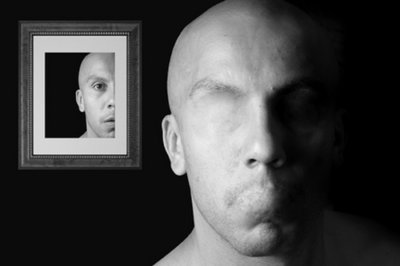How to Be Your Authentic Self
Do You Speak With Your Own Voice?
 In a literal sense, those of us who are blessed with the power of speech all speak with our own voice. But at a deeper level, many of us struggle to find our own emotional voice, and we often find it impossible to actually vocalise our own inner beliefs, opinions, thoughts and feelings.
In a literal sense, those of us who are blessed with the power of speech all speak with our own voice. But at a deeper level, many of us struggle to find our own emotional voice, and we often find it impossible to actually vocalise our own inner beliefs, opinions, thoughts and feelings.
In counselling terms we think of voicing the truths within us as speaking from ‘our authentic self,’ being true to ourselves. So how do we lose touch with this uniqueness and authenticity within us and why is it so important?
Childhood and Authenticity
During childhood, whenever we speak or offer opinions, we are met with various responses. A loving and supportive adult may value a child’s view. A judgemental and domineering parent or caregiver may crush a child’s view.
The importance of an adult’s reactions to a child’s words, thoughts and opinions cannot be overstated. When met with joy and interest, a child will feel confident to speak out and will know that their opinion is worthy of being heard. They will continue to speak out and know that what they say matters and that they, and their opinions, are valuable.
The reverse is also true. When met with judgement, being laughed at or mocked, a child will often shrink inside. Their ability to voice their own true opinions will reduce. They may even stay silent and withdraw, keeping their private thoughts locked away, unreachable and untouchable. Or, they will learn to say the ‘right’ and ‘safe’ thing, to avoid condemnation or mockery.
In this way, gradually the words they speak are no longer their own true thoughts and opinions but are a pretence. They are words which satisfy others, and words spoken to protect themselves from pain. This can then become a pattern which continues on into adulthood, in the workplace, and within adult relationships.
Adulthood and Authenticity
As adults, at some level, we all do a little pretending. At work we do not necessarily always speak the truth – sometimes it can be unwise to do so. In relationships we often realise the wisdom of not speaking up in a thoughtless sense and we curb our tongue.
To some extent we all occasionally wear a mask. But when the mask and pretence becomes the way we operate and we totally lose a sense of our own selves then we have drifted into quite different territory. We have lost touch with the essence of who we are. We have lost our authenticity.
Even worse, as we pretend and please others to ensure our emotional survival, we can lose touch with what our own true thoughts and opinions actually are, so used are we to speaking the words others want to hear. We not only don’t voice our own opinions but we can actually lose the ability to have our own true opinions and become codependent. We can feel as though we don’t really know who we are – we are a stranger living in our own mind.
Why Authenticity Matters
Authenticity matters because if we are just a spokesperson for others, then we cannot feel like a person of true value. If we do not speak with our own voice then we cannot offer individuality and bring anything original to our life and the lives of others. As a consequence, we can feel unfulfilled, resentful and disappointed in our lives.
If this is something that you struggle with then you may wonder how you can find and gain the courage to speak with your own unique voice. How can you begin to lose the fear of speaking out, of risking condemnation, of worrying about and fearing the judgement of others? How can you begin to form opinions and feel confident about expressing them?
How to Become Your Authentic Self
Counselling can be helpful as it is an inherent goal of therapy to help someone find their inner truth and gain the courage to speak with their own unique voice – to ‘find their authentic self.’
But alongside therapy there are things you can begin to think about, and take action on, as you start the slow process of finding your own unique voice:
3 Ways to Start Being Your Authentic Self
1)Accept that your voice and opinions matter.
You are entitled to have your own thoughts and your goal is to create and find these thoughts within yourself. Whatever others have said to you throughout your life, your opinions matter, this is a defining truth and is the foundation for all the rest of the work you need to do.
2) Take note of the people you have surrounded yourself with.
Are they judgemental, controlling or domineering? Will they be unhappy to see you voicing your own opinions? If you are surrounded by people like this then try looking for some other company. Find people who will value you and your right to have an opinion. Find people who want you to be an individual, who don’t want to boss you around and control you but want to see you thrive and flourish as an individual with your own opinions. Seek these people out.
3) Begin a private journal.
Privately record some of your own thoughts and voice your opinions in writing. Write about anything and everything and spend time considering what you really think about things and begin to form your own unique opinions. (You might like to learn more by reading our article on how journalling can help you heal).
2 Key Practices of Being Your Authentic Self
Now that you have some accurate thoughts in place and have begun to take action, you can move on to deeper action steps. The following two key practices can really help you to develop your authenticity:
- Make your own choices
- Develop and voice your own opinions
Our article How To Live An Authentic Life -Two Key Practices, will take you through these two key practices in depth so that you begin to find and speak with your own voice.
The Challenges of Being Your Authentic Self
As you begin speaking out it can be extremely difficult. If you are met with support, then welcome it. If you are met with criticism, then try not to retreat. Hold your ground. Criticism, though painful, says more about the speaker than about you.
Remember, you are allowed and entitled to have your own opinion. If someone mocks your opinion then they are not worthy of your time and energy – move past these people wherever you can. Or, at the very least, don’t take their criticism on board as truth.
There are people out there, though, who will value you and revel in your individuality, you just have to find them. It’s important to keep reminding yourself that each time you voice your inner truths, you are moving another step closer to being more true to yourself and of claiming, or reclaiming, ‘your authentic self.’
Conclusion
Depending on how far from your true voice you are, finding and speaking with your own emotional voice can take some time. It is actually a practice – we need to keep practicing being authentic. As you gradually connect with the truths within yourself, you’ll lose the fear of speaking out. You’ll gradually find yourself being more authentic more of the time.
Whenever you choose to be authentic, it will not only be a relief to you but your words will have an emotional truth attached to them. You’ll be speaking, not just with you own literal voice, but with your own emotional voice. Your spoken voice will mirror your inner thoughts, feelings and beliefs and your uniqueness will begin to shine. When this happens, you will truly know how good it feels to be your authentic self.
© 2014 Ruth Nina Welsh – Be Your Own Counsellor & Coach
Do you have a question or comment about how you can be your authentic self? Leave it below, we love hearing from you.







Thank You Ruth Nina for this article. I had a really hard time to find my own voice. I still feel some residue of it, and your article is empowering. Yes journaling helped me a lot, in fact I wrote a book by journaling and it moved me to different energy space. THANK YOU for sharing, I wish you very best on your journey. Blessings Daniela.
There is a certain family in my life that vexes me in the matter of what you politely call “authenticity.” Whenever I am with two or more members of that family I feel like I am attending a medieval masquerade ball and I am the only one who forgot to wear a mask. Then, the music stops and all the masks drop down to reveal the monsters beneath. Their “authenticity” appears to be a manifestation of Jung’s “Shadow” archetype. This is not a dream on my part it is my intuitive imagination at work. I wonder if it is possible for an entire family to ever change or will they always be like that.
Hi Hugh, Jung’s shadow is not an archetype. It’s a concept of self. We ALL have a shadow that is the point, learning it and integrating it is part of the powerful journey of self. We all have one, even, dare we say it… you. What you are doing here is making yourself the ‘good’ person and your family the ‘bad’ people. It’s a very rigid viewpoint, and also disempowering. If everyone else is evil and you are good, you are a victim. A victim can’t use his personal power. You can’t expect your family to change, no, they are in charge of their own journey. The only person you can change is you. If you really don’t like your family, it’s your choice to be around them or not, assuming you are over 18. And with some distance we can start to learn to see a wider perspective, and develop compassion for yourself and others.